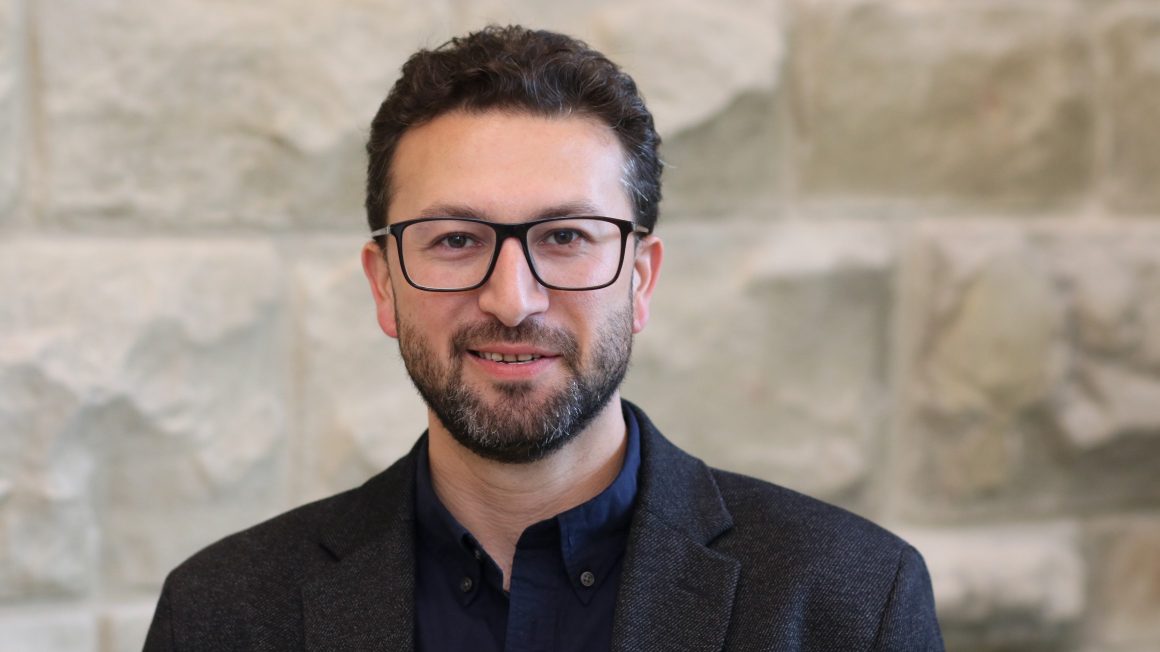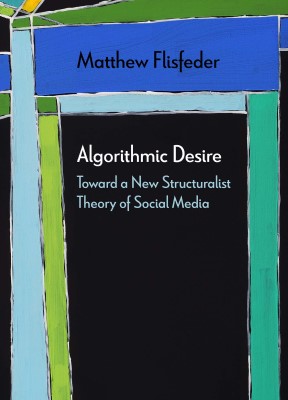Dr. Matthew Flisfeder’s new book Algorithmic Desire explores how digital platforms and algorithmic logic shape our experience of democracy, enjoyment, and desire.
While the book is aimed primarily at an academic audience, Flisfeder expects it will appeal to readers outside academia interested in the impact of popular culture on daily life.
“My research absolutely responds to the crisis we face in the world today, and attempts to think rationally about the best ways of explaining these problems, with proposals for ethical action,” he said.
Humanist reflections on popular culture
Weaving between critical theory and analyses of popular culture, he uses examples from The King’s Speech, Black Mirror, Gone Girl, The Circle, and Arrival to argue that social media highlights the anti-social dimensions of twenty-first-century capitalism.
“Social media teaches us about the role of platforms, not merely in producing a compliant population, as in the idea of surveillance capitalism, but one capable of critically understanding its structures and rebuilding toward more freedom, equity, and universality,” he said.
The book is many years in the making and takes inspiration from Marxism and Lacanian psychoanalysis, including philosopher Slavoj Žižek, UWinnipeg’s 2019 Axworthy lecturer.
“I wanted to try applying the theories and methods I used to write about film [in his first book, The Symbolic, The Sublime, and Slavoj Žižek’s Theory of Film] to critically examine the way that social media platforms, like Facebook, reflect the cultural context of postmodernism and twenty-first century capitalism, and specifically neoliberalism,” he said. “But the book is also inspired by recent turns in the humanities toward post-humanist and new materialist philosophies that emphasize immediacy and horizontalism.”
The book takes leave of these approaches and proposes a “new structuralist” account of social media that emphasizes the dialectical role of human subjectivity in critical theory.
Working on the book inspired Flisfeder’s current SSHRC-funded research, The Hysterical Sublime: A Critical Study of the Aesthetics, Rhetorics, and Ethics of New Materialist and Posthumanist Critical Theory, which draws on the work of the literary scholar Fredric Jameson who suggests that, in contrast to the romantic sublime of the early modern period which opposed human culture to the awe of nature, we have now displaced these feelings onto our fears of technology and human subjectivity. In the project, he hopes to show that the hysterical sublime is an aesthetic and rhetorical displacement of the flaws of capitalism onto anthropocentrism.
“We can use the critique of social media, not to attempt a change to our media tout court, but to better understand the conditions and limitations in neoliberal capitalism that prevent us from building a more equitable society, freed from the drudgeries of a strictly market-based worldview,” he said.
Critical studies of social media
Flisfeder is an associate professor in the Department of Rhetoric, Writing, and Communications where he teaches courses on contemporary communication theory and critical studies of social media. His research informs his teaching, helping him develop new and relevant ways for students to make sense of the conditions they face day-to-day.
“Universities play a pivotal role in building the kind of critical thinking we need for the better democratic governance of society based on principles of equity and universality,” he said.
He designed, and often teaches, Critical Studies of Social Media (RHET-3450), where students examine the role of social media in framing the world of meaning and the relationship between discourse, algorithms, and platform logic; all subject-matter explored in his recent book.
“What I love most about tying my research to teaching, and vice versa, is that I get such wonderfully creative and thoughtful questions from my students based on their real world experiences, which informs the kinds of inquiry I develop in my research,” he said.






